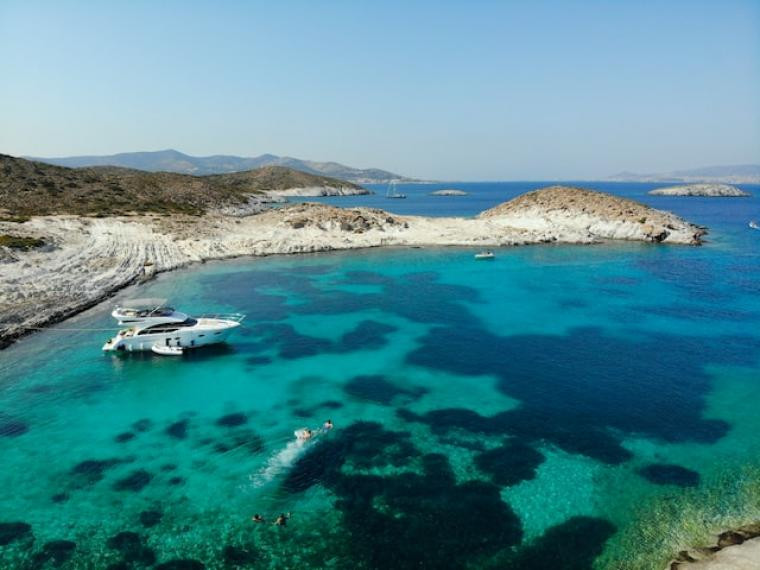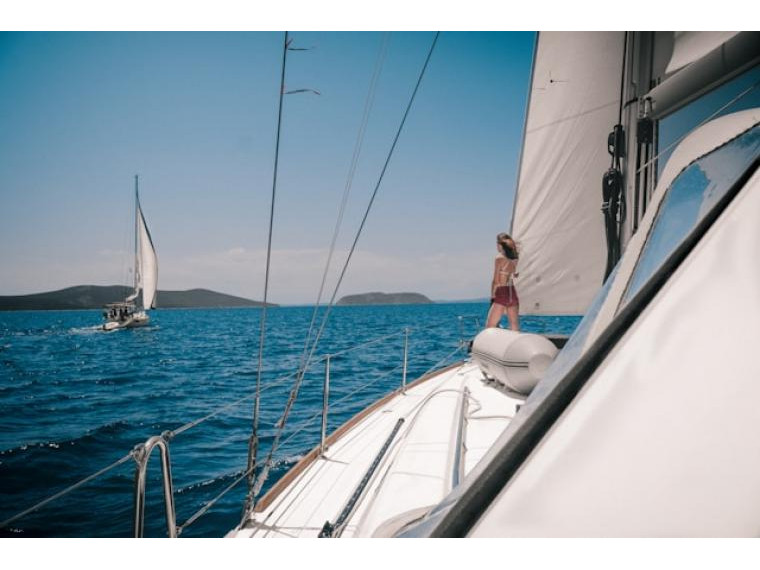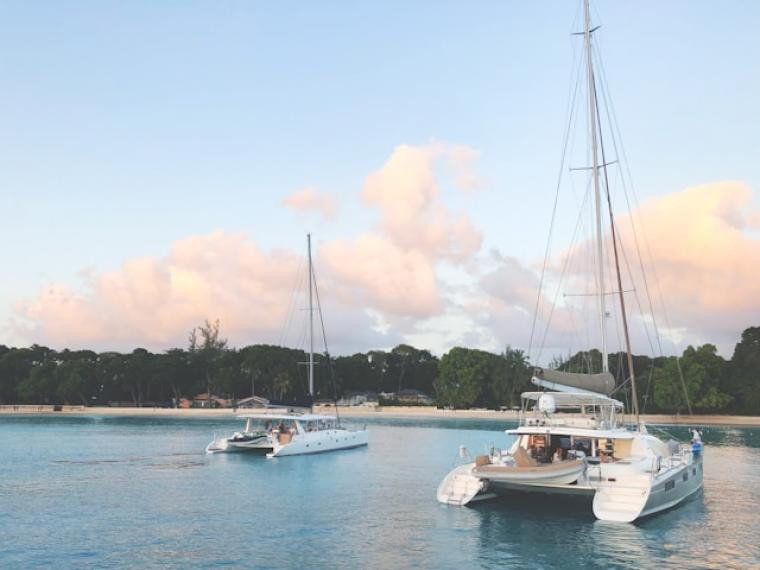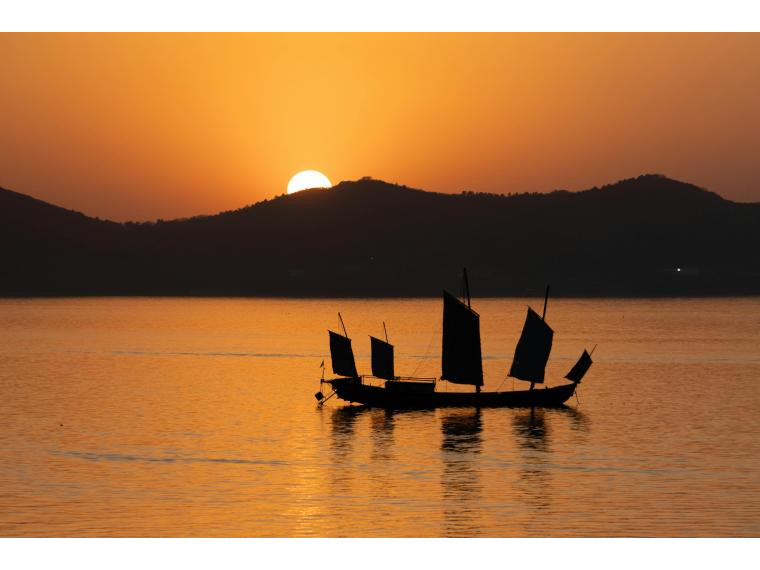Let's charter above all with our heads, but it's probably always the best way :)
Nevertheless, in our opinion:
1. Try (yes, yes, we will too) to make the first installment as small as possible.
Although the shipowners agree to transfer the charter if the borders are closed or there is a quarantine in Poland or the country where we charter the yacht, but in the case of a low first installment, we freeze only part of our cash. In the 2020 season, some shipowners offered a payment system: 10% on the day of signing the contract and 90% 10 days before the cruise.
If you pay a low installment, let's say 10-20%, assuming a black scenario, where along the way: the crew (hi), the agency, the shipowner will be insolvent or the situation will become so serious that you will be afraid to go (even though the borders will be open) then you will have 80-90% of the charter value in your pocket. For this amount you will be able to charter a similar replacement yacht. Not always of the same standard or from the same marina, but the cruise will be able to take place at a different time.
2. Read the shipowner's COVID policy.
Almost every shipowner in the 2020 season agreed to transfer the charter or issue a voucher for the amount paid if the borders are closed or quarantine is in effect.
Of course, more "pro-customer" shipowners also appeared.
a) they did not require payment of the entire amount for the charter to be able to transfer the charter (90-95% of shipowners)
b) agreed to the transfer if the flights became significantly more expensive
c) the crew, due to their work or operating in industries affected by the crisis, could not participate in the cruise
b) there were also those who agreed to move even if the borders were open and the crew was simply afraid to go.
How will it be in the 2021 season .... we'll see. On the one hand, the policy should be more liberal in order to adapt to the prevailing conditions, uncertainty in planning. Probably much greater supply than demand will affect the "fight" for the client and some companies will want to attract charterers with a liberal COVID policy. On the other hand, the risk is already more aware and some shipowners may come to the conclusion that since you know what the situation is, you are aware of the risk.
Summa summarum…you have to find out.
3. Rather charter from decent and proven companies.
There will probably be several new charter entities this year. The question is who opens a charter company in crisis? So if a new creation is being created, you have to wonder why? Isn't it just a new name for an "old" company that failed and due to financial problems had to close down and open a new entity.
Check comments and reviews. Just do it with your head, because a whole lot of opinions can be written on request. If you see that a small business has 1,000 reviews. Opinions were created in a certain period of time, eg 20 opinions in January and then silence throughout the year. Reviews are detached from reality, e.g. 20 reviews "it was great", "I recommend the base manager" etc. etc. are "know that something is happening".
Before you book a yacht, ask us (we will probably tell you the same thing before) how the shipowner behaved in the 2020 season. Was he flexible, did he have problems with transfers, etc. etc. This is also very important.
Of course, it may turn out that there will be problems with good companies or newly established companies will turn out to be great. It is more about a certain risk minimization based on the calculus of probability.
4. Wait or not wait for last minute deals.
This year, you could do wonders with last minute charter prices. Sometimes it was possible to obtain rates 60-65% lower than the list price. And if the pattern was repeated in the 2021 season, you can wait with the decision to book until a few days before the cruise.
Of course, that doesn't always make sense. By booking the yacht in advance, we have more time to gather the crew. There is more choice of units. We have everything planned in advance, holidays taken, etc. etc.
However, this "waiting" is associated with a certain risk, a certain unknown. It's not like yacht owners make a lot of money. If you think that by offering a yacht with a 50% discount (of course, if the basic price is quite market) throughout the season, they are a plus, you are wrong. Will shipowners be able to afford such rates and such discounts for the second season in a row. It's hard to judge. It will be very, very hard for them. This year the supply was much much higher than the demand. The situation surprised everyone and in order to save themselves, the shipowners preferred to earn less than earn nothing.
Let us also remember that many charters have been moved from 2020 to 2021. Thus, we already have some reservations for the 2021 season, which are de facto sailings transferred from the 2020 season.
5. Before you book a yacht, read what the restrictions of neighboring countries look like.
If we plan to charter a yacht in Croatia, e.g. from Zadar, hardly anyone has plans to go to Italy. However, if you are planning a charter from Dubrovnik with the possibility of visiting Montenegro, cruises in the Caribbean where a lot of countries and islands are "closed", Germany with a course to Sweden or Denmark, etc. etc ... in a word, if you plan to cross borders, check exactly how it was in 2020 and what there are plans for 2021.
For example, currently (as of October 29, 2020) you can charter a yacht in Martinique, but you cannot sail to St. Lucia and below, Guadeloupe and Dominica. Therefore, the fact that we will fly to Martinique will not help us much because we will have to hang around Martinique for the entire cruise, i.e. 14 days. Rather average attraction.

 Due to the epidemic situation, everyone has a dilemma whether to charter yachts before the season, as usual, or wait until the last minute. We suggest what may be the best choice in these difficult times for all of us. But for sure, let's not give up on vacation as much as we can!
Due to the epidemic situation, everyone has a dilemma whether to charter yachts before the season, as usual, or wait until the last minute. We suggest what may be the best choice in these difficult times for all of us. But for sure, let's not give up on vacation as much as we can!











